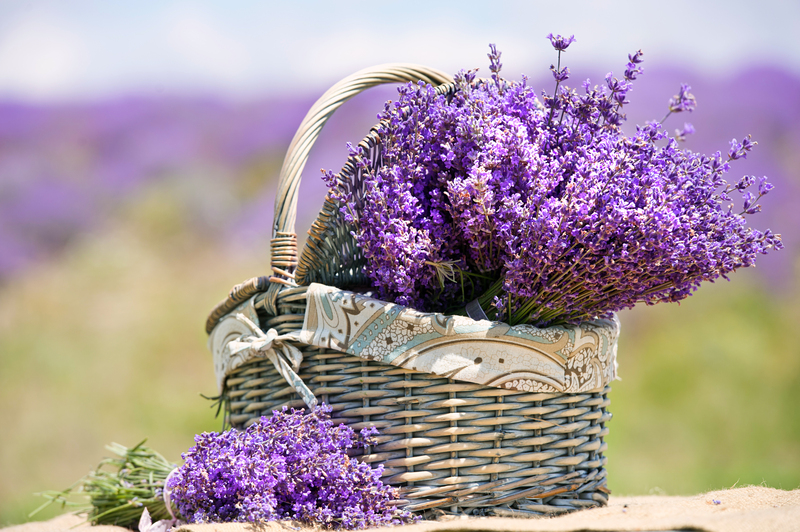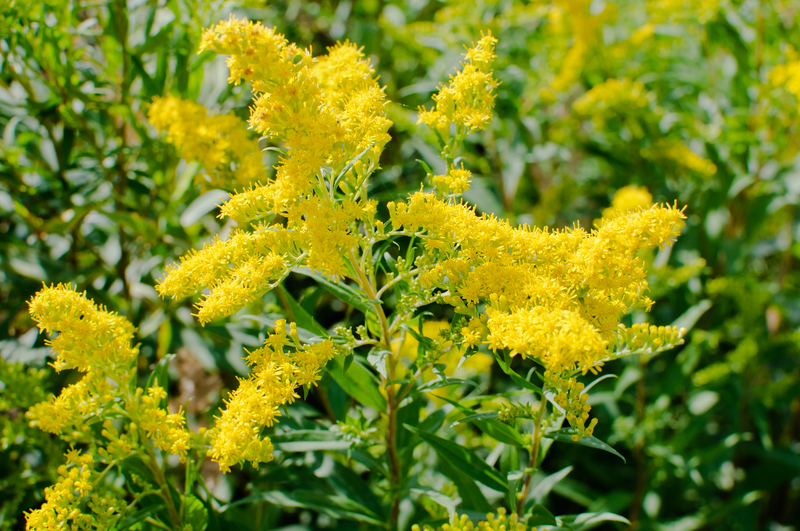9 Gardening Tips to Help Rookies Blossom
Posted on 27/08/2025
9 Gardening Tips to Help Rookies Blossom
Are you dreaming of lush, colorful flowerbeds, flavorful homegrown veggies, or a peaceful green haven right outside your door? Starting a garden is one of the most rewarding hobbies you can choose, but novice gardeners often find themselves overwhelmed by choices, advice, and rookie mistakes. If you're a beginner that's eager to watch your garden thrive, these beginner gardening tips will help you avoid pitfalls and cultivate your confidence, plants, and passion!
1. Start Small and Plan Ahead
One of the best gardening tips for beginners is to begin modestly. As much as the idea of a sprawling garden is enticing, it's easy to become overworked and disheartened by biting off more than you can chew.
- Assess Your Space: Take a walk around your yard or balcony. Measure the area you can dedicate to gardening, paying attention to sunlight, wind, and accessibility.
- Think About Time: Consider the amount of time you can realistically spend tending to your plants each week.
- Choose Easy Projects: Container gardens, raised beds, or a small patch of soil are perfect for rookie gardeners.
Pro Tip: Sketch out your garden idea on paper before digging or purchasing anything. This early planning can save you money and headaches down the road!

2. Know Your Growing Zone
Understanding your USDA Plant Hardiness Zone (or the equivalent in your region) is critical. This tells you what plants will thrive in your climate and when the frost-free dates are for planting.
- Check Online: Use zip code tools available on USDA's website.
- Talk to Local Gardeners: Join community groups or garden centers to learn from neighbors who know local conditions.
This simple research can make the difference between abundant blooms and repeated disappointment. Choosing plants suited to your growing conditions is a foundation for all successful gardens.
3. Pick the Right Plants for Beginners
When starting your first garden, it's tempting to pick the flashiest flowers or the most exotic vegetables. However, the best advice for gardening rookies is to start with reliable, low-maintenance plants that let you learn and succeed early!
Top Easy-to-Grow Plants:
- Marigolds: Hardy, colorful, and naturally pest-resistant.
- Lettuce and Radishes: Quick to harvest, perfect for small spaces.
- Sunflowers: Fun for all ages, these giants add cheer and are forgiving of beginners' mistakes.
- Herbs like basil, mint, or parsley: Thrive in pots and can be grown indoors or out.
Look for companion planting opportunities, where certain plants help each other grow, even if you have a limited space. This is an excellent gardening tip for beginners that leads to healthier plants and less work.
4. Invest in Good Soil & Compost
The foundation of a healthy garden is the quality of your soil. Rich, well-draining earth supports strong root systems and robust growth, making this one of the most important gardening tips for first-time gardeners.
- Test Your Soil: Purchase an inexpensive soil test kit or consult your local extension service to check pH, texture, and nutrient levels.
- Add Compost: Blend in homemade or store-bought compost to introduce beneficial microbes and organic matter.
- Use Mulch: Apply organic mulch to conserve moisture, suppress weeds, and enrich the soil as it breaks down.
Tip: If growing in containers, use high-quality potting mixes specifically designed for the plants you've chosen, rather than ordinary garden soil.
5. Practice Consistent Watering
Novices often overwater or underwater their plants. Learning the right watering technique is one of the best gardening habits you can develop. Remember: More plants die from too much water than too little!
- Check Soil Moisture: Stick your finger into the soil; water only if it feels dry below the surface.
- Water Deeply, Not Often: Give plants a thorough soak to encourage deep roots, rather than a little sprinkle each day.
- Best Times to Water: Early morning or late afternoon to reduce evaporation and fungal problems.
For container gardens: Check pots daily in hot weather. Containers dry out much faster than ground soil.
6. Watch Out for Weeds and Pests
New gardeners can be caught off-guard by fast-growing weeds and sneaky pests. Both compete with your plants for resources and can ruin your hard work if left unchecked.
- Mulch Regularly: A 2-3 inch layer of mulch traps moisture and makes it hard for weeds to take hold.
- Identify Garden Pests: Learn to spot beneficial insects (like ladybugs) versus harmful ones (like aphids).
- Use Natural Methods: Try physical removal, neem oil, or insecticidal soap instead of chemical sprays, especially for veggies and herbs.
- Practice Crop Rotation: Changing the location of crops each season confuses pests and reduces disease.
Keeping your garden clean and checking plants regularly are essential gardening tips for beginners. Early action prevents big problems.
7. Feed Your Plants Wisely
Plants, like people, need proper nutrition to grow and bloom. Too much fertilizer, or the wrong kind, can do more harm than good--especially for gardening rookies.
- Read Labels: Choose organic or slow-release fertilizers for gentle, consistent feeding.
- Compost is Gold: Regularly top-dressing with compost improves soil and feeds roots naturally.
- Avoid Overfeeding: Too much fertilizer (especially high-nitrogen) can cause lush leaves but poor flowers or fruit.
Tip: Some plants, like beans and peas, actually add nitrogen to the soil. Planting them is a great way to maintain soil fertility without using extra fertilizers.
8. Learn Pruning & Deadheading Basics
Pruning and deadheading may sound intimidating to a rookie gardener, but they're two of the easiest ways to keep your garden looking great and producing more blooms.
- Deadheading: Regularly remove spent flowers from annuals and perennials to encourage new blooms.
- Prune Shrubs and Small Trees: Remove dead or diseased branches for healthier growth and air circulation.
- Pinch and Trim Herbs: Pinch off flower heads to keep herbs leafy for longer harvests.
Always use clean, sharp tools to avoid spreading disease. Even a quick five-minute tidy-up each week makes a huge difference and is a great habit for beginner gardeners to adopt.
9. Be Patient and Enjoy the Journey
Perhaps the most important gardening tip for beginners is to be patient with yourself and your garden. Plants take time to grow, weather is unpredictable, and every garden has its ups and downs.
- Start a Garden Journal: Note what works, what fails, and what makes you happy. You'll learn quickly from your own notes and observations.
- Celebrate Progress: Every sprout, every bloom, and every harvest is a victory. Snap photos and share with friends or local gardening groups for support and inspiration.
- Keep Learning: Gardening is a lifelong journey; there's always something new to grow or a new skill to try.
Even the most experienced gardeners were once beginners! Mistakes are part of the process. What matters most is that you enjoy the experience and let your passion grow alongside your plants.
Bonus Tips for Successful Gardening Beginners
- Visit Your Local Garden Center Regularly: Staff can offer personalized advice based on your local weather and soil.
- Get Kids Involved: Gardening is a family-friendly activity that teaches responsibility and an appreciation for nature.
- Try Raised Beds or Vertical Gardening: These are great solutions for small spaces or poor soil.
- Embrace Native Plants: Native flowers and shrubs require less care and attract local wildlife.
- Connect With Community Gardens: Joining a community garden is a way to share knowledge, tools, and friendship while building your skills.

Frequently Asked Questions for Rookie Gardeners
- How much sunlight do my plants need?
Most vegetables and flowers need at least 6-8 hours of sunlight. Shade-loving plants prefer morning sun and afternoon shade. - Can I start gardening if I only have a balcony?
Absolutely! Container gardening is perfect for balconies or patios. Just make sure your pots have drainage holes and match your plants to the amount of light available. - When should I start planting?
Check seed packets for recommended start times, and use your last expected frost date as a guideline. Many gardeners start seeds indoors 4-8 weeks before moving them outdoors.
Conclusion: Watch Your Garden--and Confidence--Blossom!
Whether you're tending a single pot on a windowsill or dreaming of a flourishing backyard oasis, these beginner gardening tips will help you avoid common mistakes and nurture a thriving, beautiful garden. Remember to start small, get to know your plants, and enjoy every moment in the fresh air.
Happy gardening, future green thumbs! With these expert gardening tips for rookies, you'll soon find your garden blossoming--and yourself blossoming right alongside it.
Ready to get started? Share your gardening journey with us in the comments and let us know which tips helped your garden thrive!
Latest Posts
Green Walls and Vertical Gardens: Beauty Reimagined
Recycling Organics into Lush, Growing Soil
The Magical World of Herb Gardening

